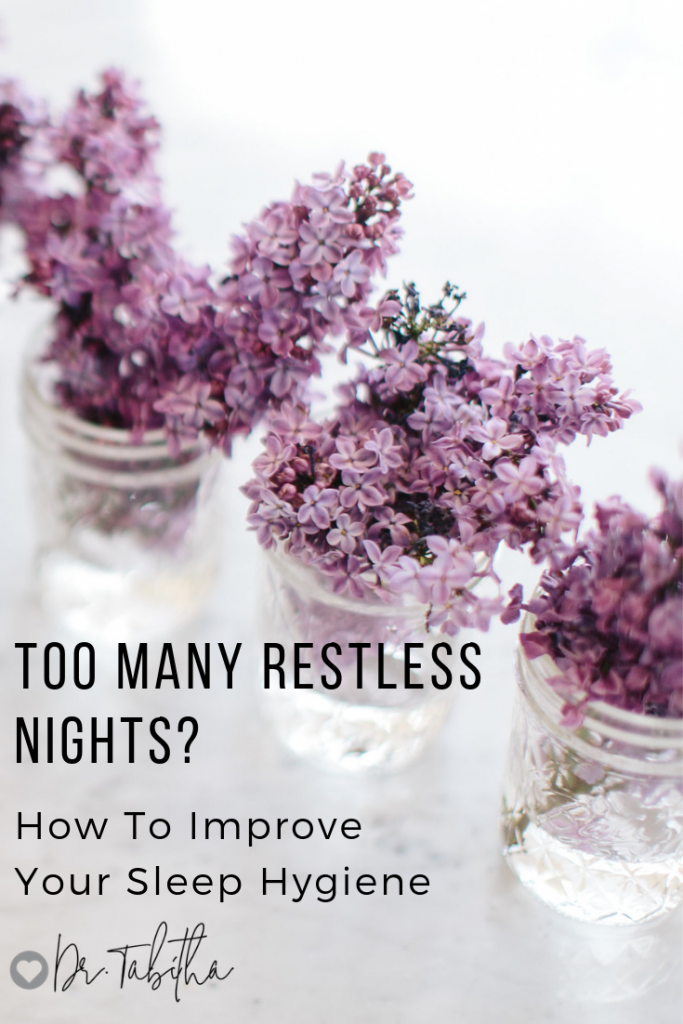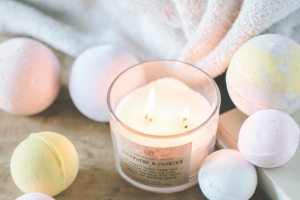
Let’s be honest, most of us probably do not get enough sleep. Sometimes I can get caught up watching TV, reading, online shopping or hanging out with my family that suddenly I’ve missed my window to get the recommended 8 hours of sleep. Do you ever struggle to get enough sleep and wake up feeling tired? Do you notice that you are more sad or irritable when you haven’t slept? Are you familiar with ways to improve your sleep hygiene?
What about everyone else?
The national sleep foundation recommends 7-9 hours of sleep per night for adults age 18-64. However, 40% of Americans get less than seven hours of sleep, averaging 6.8 hours a night according to a recent Gallup Poll. There is a high correlation between sleep and your mental health. It seems to be a cyclical situation in that mental health can cause sleep disturbances but not getting enough sleep can cause mood disturbances. Learn more about the connection between sleep and mental health click here.
How does mental health affect sleep?
There are multiple mental health diagnoses that have sleep disturbances as a symptom; depression, anxiety, ADHD, PTSD, and panic disorders, to list a few. Racing thoughts can keep you from going to sleep or some might wake up in the night from panic – either way they miss out on a restful night’s sleep. One of the symptoms of depression is feeling tired or sleeping more than normal.
How does sleep affect your mental health?
When you are experiencing sleep deprivation, it can be difficult to regulate your mood, manage stress keep your emotions at a “normal” level. Lack of sleep also has a physiological effect on the brain and makes it harder to focus and find the motivation to do the things that you need to do. Read on to learn more about how to improve your sleep hygiene.
What can you do?
Follow a regular bedtime and wake up time.
It is important to get your body into a consistent rhythm. Having the same wake up and bedtime even on off days helps to cue your body that it is time for sleep or wakefulness. This is a just one way you can improve your sleep hygiene.
Create a night and morning routine.
Along with having a set bedtime and wake up time, night time and morning routines cue the body for what it is time for. So, at night, lower the lights, take care of your hygiene, read a book or do another relaxing activity, then it is lights out. Whatever routine works for you, do it each and every night, without fail. Morning routines help to get the day started. This can include breakfast, an activity, planning for the day, and/or getting dressed.
Watch what you put in your body.
Avoid caffeine, alcohol and nicotine close to bedtime. There’s no need to add stimulants if you are struggling to find sleep. Try some vanilla, chamomile or lavender oils or tea as part of your effort to improve your sleep hygiene. These natural herbs and oils have been shown to help induce sleep.
Exercise.
Exercise during the day and get regular exposure to natural light. This helps to set your body’s rhythm and also helps to physically tire you out. You may be emotionally exhausted but without some physical activity your body will not be physically ready for sleep.
Meditate or get your flow on.
Meditation and yoga can help the body learn how to relax as well as aid in emotional regulation. There are many different types of mediation and yoga. There are even plenty of options available for free via various apps and YouTube.
Use the bedroom only for sleep.
This means keep the electronics out of the bed. Do not use your bedroom as a place for activity or work. If you do then your brain will associate that room with work rather than sleep. This means watching TV, playing with your kids, talking on the phone. You want your room to be a calming retreat that your brain associates with sleep.
Set up a comfortable sleep space.
Lower the temperature – people tend to sleep better in cooler environments. Create a clean, comfortable sleeping space. Declutter your bedroom and this will help to declutter your mind as well.
Journal before bed.
At night, journaling can help to get into a more positive headspace or to process your thoughts from the day. This way you are giving your thoughts a place to rest rather than running through your mind.
If you find that you struggle with lack of good sleep, need to improve your sleep hygiene or suspect it may be affecting your mental health, try experimenting with one or more of the tips above. If those suggestions don’t do the trick, you may be struggling from anxiety or depression and it would be beneficial for you to talk to someone. Counseling can help you reframe and quiet your racing thoughts, improve sleep hygiene and emotional regulation. I highly recommend the therapists at Family Therapy Associates. Many of them specialize in anxiety, depression and helping clients develop healthy coping skills. Learn more about the connection between sleep and mental health.
What helps you get quality sleep at night?






Leave a Reply
Your email is safe with us.